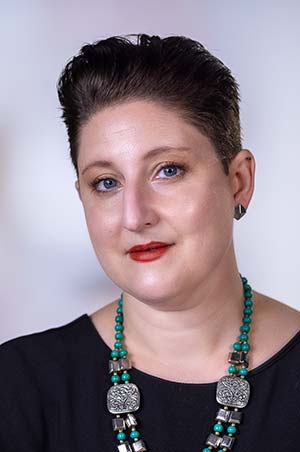Rachel A. Bender Ignacio, MD, MPH
Assistant Professor
Vaccine and Infectious Disease Division, Fred Hutch
Medical Director
COVID-19 Clinical Research Center, Fred Hutch
Dr. Rachel Bender Ignacio is a physician-scientist who specializes in the treatment and prevention of infectious diseases, focusing on HIV/AIDS and COVID-19. With a background in epidemiology and global health, she explores co-infections with herpesviruses or tuberculosis among people with or at risk for HIV. Dr. Bender Ignacio also studies the development of cancers in people living with HIV and develops protocols for clinical care of people with HIV-related malignancies. Her translational research on the immune system includes research on inflammation, immune-cell and antibody responses to viral infections, and susceptibility to HIV, as well as studies on the establishment of latency in early HIV infection. She also is engaged in the design and operation of studies on ways to treat COVID-19 in its early stages. Dr. Bender Ignacio is a member of the HOPE Group (HIV Outcomes, Prevention and Epidemiology).
Other Appointments & Affiliations
Assistant Professor, Allergy and Infectious Diseases, Department of Medicine, University of WashingtonAssistant Professor, Allergy and Infectious Diseases
Department of Medicine, University of Washington
Attending Physician
University of Washington and Harborview Medical Center Infectious Disease Services
Adjunct Assistant Professor, Department of Epidemiology
School of Public Health, University of Washington
Education
2012-2015 Fellow, Division of Allergy and Infectious Diseases, University of Washington
2014 University of Washington School of Public Health, MPH-Epidemiology
2008-2011 Resident, Internal Medicine Residency, Massachusetts General Hospital, Harvard, Boston
2008 University of Washington School of Medicine, MD, Certificate in Global Health
2004 Dartmouth College, AB Religion, Presidential Scholar with Honors
Research Interests
Co-Infections in HIV: Various studies on human herpesviruses and tuberculosis in the setting of HIV infection or HIV risk
Inflammation, Immune responses in HIV and HIV susceptibility: Studying the role of immune activation on risk for HIV and in establishment of latency in early HIV infection, as well as role of early ART on immunologic and virologic outcomes of HIV
HIV-associated Malignancy: Protocol co-chair for AIDS Malignancy Consortium study. Various issues surrounding HIV care in persons with HIV-associated malignancies including: improvement around HIV diagnosis, treatment, barriers to care, and concomitant use of antiretroviral therapy during cancer treatment
VirScan Assay: Spearheading the transfer of this technology to the Fred Hutch and how this assay can serve as a tool for understanding immune responses to the anti-virome and for prediction of clinical outcomes
COVID-19 Epidemiology and Treatment: Designing and conducting translational, early phase, and large efficacy studies of COVID-19 treatments. Understanding the epidemiology of COVID-19 in people with HIV
Clinical Expertise
HIV
General Infectious Diseases
Infections in Solid Organ Transplantation
Herpesvirus infections
HIV-associated malignancy
HIV/TB co-infection
Awards & Honors
2003 - William Jewett Tucker Foundation International Fellowship
2004 - Presidential Scholar with Honors, Dartmouth College
2005 - Medical Student Research Training Program, University of Washington
2011 - Yale Johnson & Johnson Fellowship (deferred for another competing opportunity)
2011 - Winickoff Fellowship for Research in Primary Care, Massachusetts General Hospital
2012 - IDWeek Trainee Grant Award Winner
2014 - CFAR Trainee Support Grant
2015 - CROI Young Investigator Award
2016 - K23 Mentored Career Award, NIAID, NIH
2018 - CFAR New Investigator Award
2019 - Outstanding Research Mentor of 2019, University of Washington School of Medicine
2019 - UW Global Innovation Fund Award
2020 - Chair of Medicine Award, UW Department of Medicine
Publications
Current Studies
"Throughout history, how people care for the marginalized parts of the population and develop cities and their infrastructure is intrinsically tied to who’s in charge and their ethos."
— Dr. Rachel Bender Ignacio
